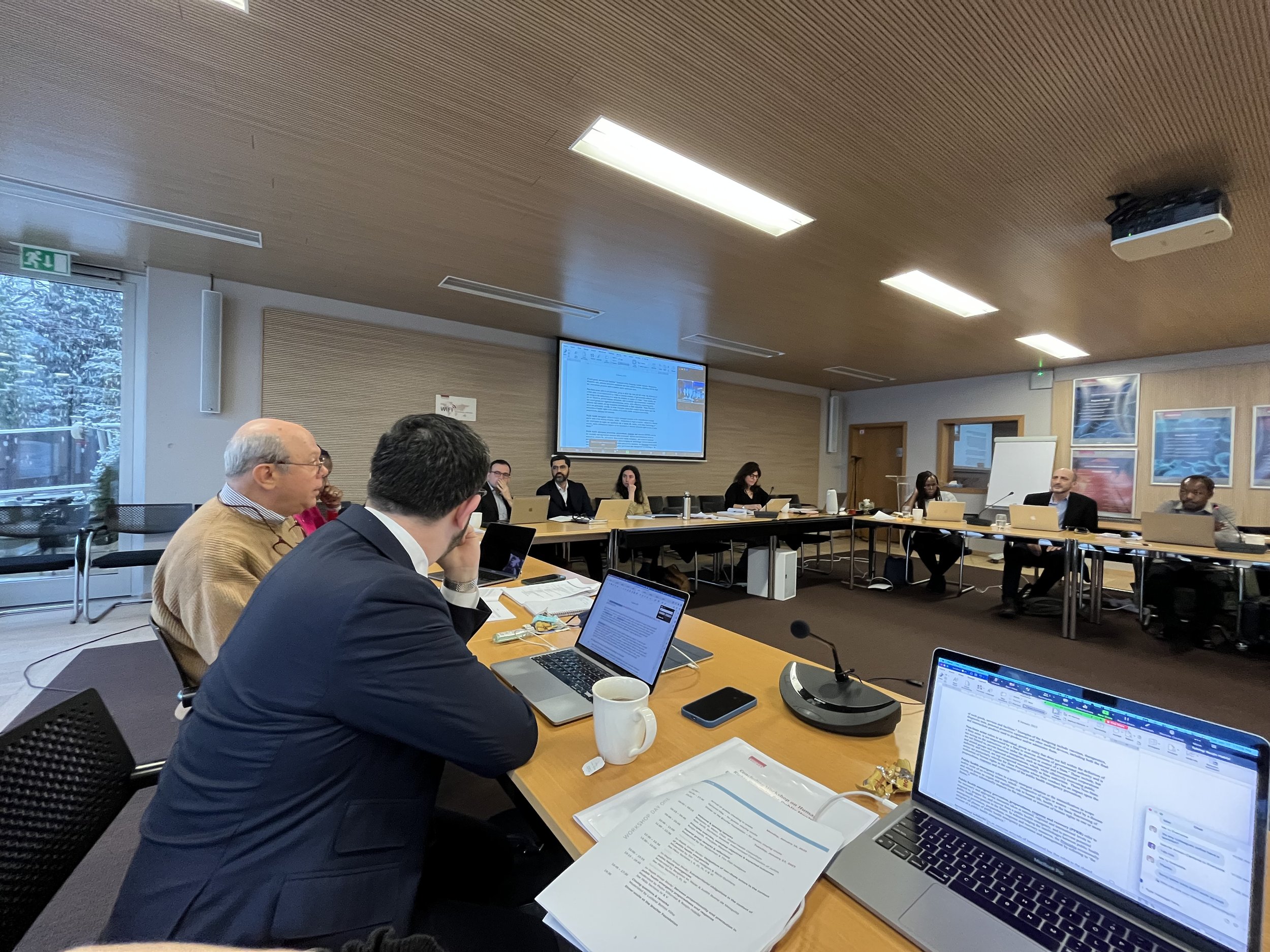
Drafting and Adoption Process
The PHE Principles were developed through a three-year deliberative process between more than 150 individuals from around the world, including international legal scholars and practitioners, human rights defenders, civil society advocates, public health researchers, health workers, and others bearing relevant insights and expertise. The process to develop the Principles involved several rounds of revision and feedback, facilitated by the following individuals:
Core Experts: Distinguished experts in the field of health and human rights were convened in an international secretariat which co-authored the Principles from the first draft through all subsequent revisions. Core experts provided crucial peer review of the multiple drafts of the Principles, participated and contributed to key international meetings and endorsed the final version of the Principles. They included:
Gian Luca Burci, Luisa Cabal, Thana de Campos-Rudinsky, Danwood Chirwa, Stéphanie Dagron, Sara (Meg) Davis, Mark Eccleston-Turner, Rossella de Falco, Lisa Forman, Lawrence O. Gostin, Aeyal Gross, Steven J. Hoffman, Rajat Khosla, Tsung-Ling Lee, Stefania Negri, Alexandra Phelan, Ravi M. Ram, Magdalena Sepúlveda Carmona, Matiangai Sirleaf, Allyn L. Taylor, Brigit Toebes, Nerima Were and Alicia Ely Yamin.
Steering Committee: Chaired by Roojin Habibi, Professor at the Faculty of Law (Common Law Section), University of Ottawa, the Steering Committee collaborated closely in organizing global consultations, synthesizing inputs, conducting background research, providing intellectual direction, and developing iterative drafts of the Principles. The following individuals served as members of the Steering Committee:
Timothy Fish Hodgson, Senior Legal Adviser on Economic and Social Rights, International Commission of Jurists
Benjamin Mason Meier, Professor, Department of Public Policy & Gillings School of Global Public Health, University of North Carolina at Chapel Hill
Saman Zia-Zarifi, Executive Director, Physicians for Human Rights (formerly Secretary-General, International Commission of Jurists)
Ian Seiderman, Legal and Policy Director, International Commission of Jurists
Judith Bueno de Mesquita, Senior Lecturer and Co-Deputy Director, Human Rights Centre, Essex Law School, University of Essex
Rocío Quintero Martinez, Legal Adviser, Latin America Programme, International Commission of Jurists
Pedro A. Villarreal, Senior Research Fellow, German Institute for International and Security Affairs & Max Planck Institute for Comparative Public and International Law
Luciano Bottini Filho, Lecturer, Helena Kennedy Centre for International Justice, Sheffield Hallam University
Sharifah Sekalala, Professor, Faculty of Law, University of Warwick
Regional Consultation Leads: The final text of the PHE Principles was informed by several virtual and in-person consultations which took place from 2020 to 2023. Regional consultations were held in all six WHO Regions led by the following health and human rights experts:
Gabriel Armas-Cardona
Luciano Bottini Filho
Yogi Bratajaya
Farnoosh Hashemian
India Haus
Sreenath Namboodiri and Nithin Ramakrishnan
Chiamaka Precious Ojiako
Rocío Quintero Martinez
The participation of many individuals informed the outcome of these regional consultations. We mention here those who have explicitly accepted acknowledgment, though many others gave their time and expertise towards the development of the Principles:
Arachu Castro, Lucía Berro Pizzarossa, Paulo Bustillos, Andrés Constantin, Verónica Hinestroza, Eduardo Arenas Catalán, María de Jesús Medina Arellano, Lesly Ramirez, Marlene Rodríguez Atriano, Pilar Medina, Diana Bernal, Camila Gianella Malca, Natalia Echegoyemberry, Muriel Lamarque, Liliana Ronconi, Diana Guarnizo, Rodrigo Uprimny, Johanna Cortes and Julieta Rossi.
In addition to regular virtual working sessions, key meetings took place at the following times and places:
An interim expert consensus conference held in hybrid form in Mantello, Italy, in November 2021 to deliberate on a first draft of the Principles;
Virtual regional consultations with human rights defenders, health workers and other experts with contextualized knowledge about the impact of public health emergencies in their communities;
A workshop among the consultants who led the regional consultations held at the British Institute in Eastern Africa in Nairobi, Kenya in late 2022 to deliberate on the findings of regional consultations; and
A concluding workshop held at the Brocher Foundation in Hermance, Switzerland to finalize the Principles.
These Principles would not have been possible without the inputs, expertise, and support for hosting meetings from several institutions and organizations, including the Open Society Foundations, the Social Sciences and Humanities Research Council of Canada, the Brocher Foundation, the British Institute in Eastern Africa, the University of Warwick School of Law, and the Pierre Elliott Trudeau Foundation.
